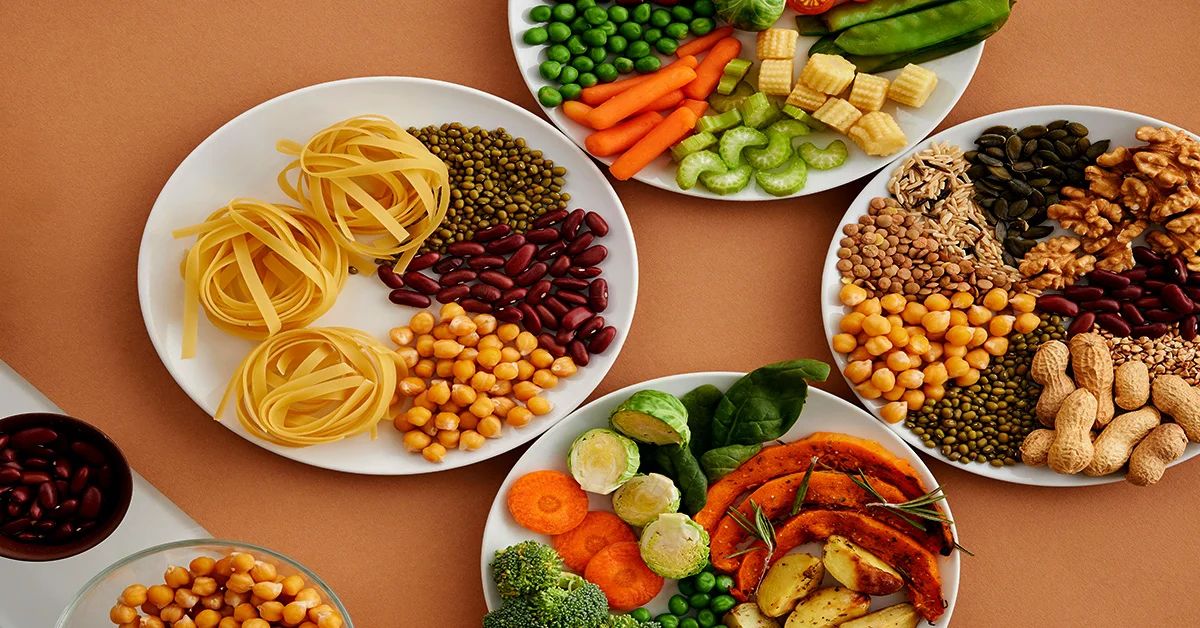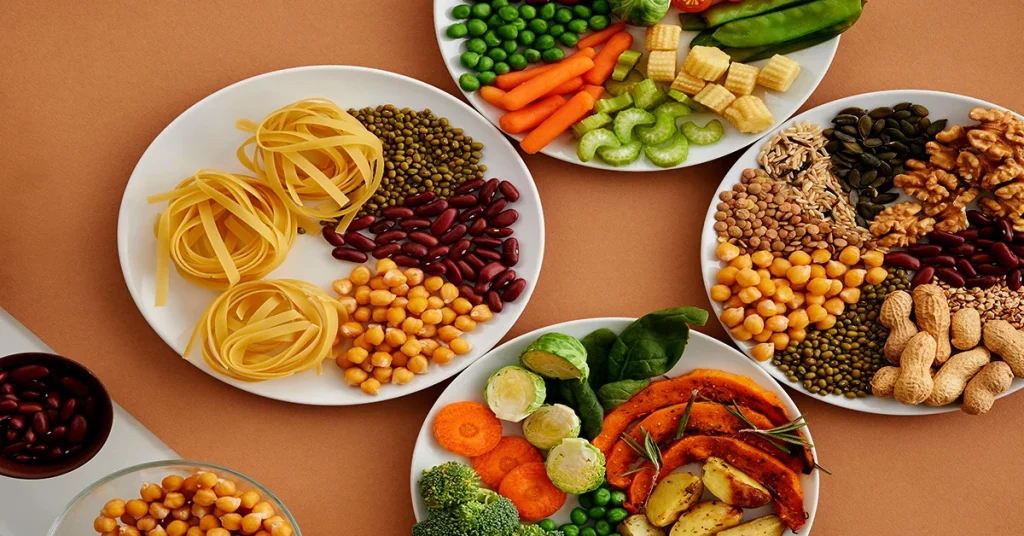- What Are White Chickpeas?
- Nutritional Powerhouse: What’s Inside White Chickpeas?
- Surprising Benefit #1: Boosts Digestion Naturally
- Surprising Benefit #2: Supports Heart Health Like a Pro
- Surprising Benefit #3: Helps in Weight Management
- Surprising Benefit #4: A Boost for Your Immune System
- Surprising Benefit #5: Provides Sustainable Energy
- How to Incorporate White Chickpeas into Your Daily Diet
- Are White Chickpeas Suitable for Everyone?
- The Bottom Line: Why You Should Make White Chickpeas a Staple in Your Diet
- Conclusion: Embrace the Nutritional Power of White Chickpeas
- FAQs White Chickpeas Nutrition Benefits
Why White Chickpeas Are a Game-Changer for Your Health
White Chickpeas Nutrition Benefits, White chickpeas are far more than just a delicious addition to your meals; they are a nutritional powerhouse that offers a multitude of health benefits. From improving digestion to boosting heart health, they are versatile, affordable, and packed with essential nutrients. Whether you are a health-conscious individual or someone simply looking to improve your diet, white chickpeas are here to make a significant impact on your overall well-being.
Let’s explore the many reasons why these humble legumes should be a staple in your diet, White Chickpeas Nutrition Benefits, starting with an understanding of what white chickpeas are and how they stand out among other legumes.
What Are White Chickpeas?
A Brief Overview of White Chickpeas
White Chickpeas Nutrition Benefits, White chickpeas, also known as garbanzo beans, are one of the most widely consumed legumes worldwide. Originating from the Middle East and parts of Asia, they have found their way into cuisines across the globe. These legumes have a light beige color, a round shape, and a mild, nutty flavor that pairs well with a variety of dishes.
They’re highly nutritious and are packed with protein, fiber, vitamins, and minerals, making them an essential food for vegetarians, vegans, and anyone looking to add more plant-based options to their diet.
Differences Between White Chickpeas and Other Varieties
White Chickpeas Nutrition Benefits, While white chickpeas are the most common variety, there are other types like black chickpeas and red chickpeas. These other varieties differ in color, taste, and texture, but white chickpeas are known for their versatility in recipes ranging from salads to curries. They also have a milder flavor than their darker counterparts, which makes them a better option for dishes that require a neutral base.
Nutritionally, white chickpeas contain slightly more carbohydrates than other varieties, but they are lower in fat, making them ideal for those looking to maintain a healthy weight while still receiving high-quality protein.
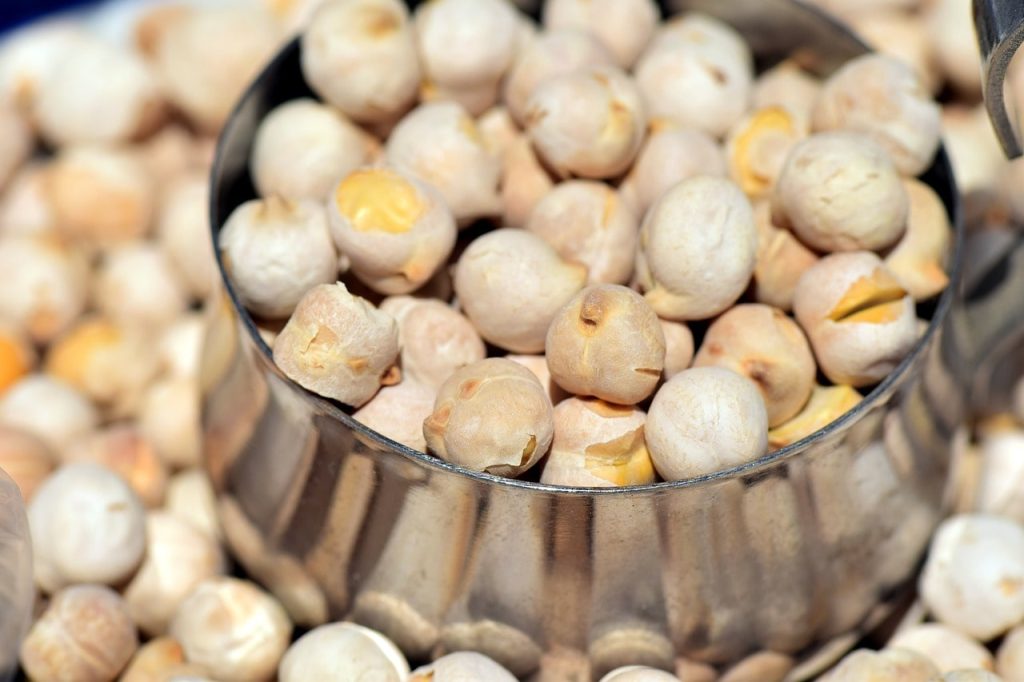
Are sprouted almonds good for skin Glow Naturally
Find Out How Many Almonds to Eat Per Day for Glowing Skin
Top 10 Yogurt Health Benefits for a Healthier Lifestyle
Nutritional Powerhouse: What’s Inside White Chickpeas?
Chickpeas protein per 100g: A Snapshot of White Chickpeas’ Nutrient Profile
White Chickpeas Nutrition Benefits, White chickpeas are incredibly nutrient-dense. Just one cup of cooked white chickpeas provides the following:
- Protein: 15 grams
- Fiber: 12 grams
- Carbohydrates: 45 grams
- Iron: 4.7 mg (about 26% of the daily recommended intake)
- Folate: 282 micrograms (about 71% of the daily recommended intake)
- Potassium: 477 mg
- Magnesium: 78 mg
Additionally, they are packed with antioxidants, B-vitamins, and several other minerals, including zinc and copper, which are important for overall health.
How White Chickpeas Compare to Other Legumes
Compared to other legumes like lentils, black beans, or kidney beans, white chickpeas are rich in protein, making them an excellent choice for those looking to replace animal products with plant-based options. They also provide more fiber than many other legumes, which helps with digestion and maintaining a healthy weight.
In terms of carbohydrates, White Chickpeas Nutrition Benefits, white chickpeas are considered a low glycemic food, meaning they release energy slowly into the bloodstream, making them a great choice for those managing blood sugar levels.
Surprising Benefit #1: Boosts Digestion Naturally
High Fiber Content for Digestive Health
One of the key benefits of white chickpeas is their high fiber content. Fiber is essential for proper digestion, and white chickpeas deliver it in abundance. White Chickpeas Nutrition Benefits, The fiber helps regulate bowel movements, improve gut health, and support healthy digestion. Fiber also promotes the growth of beneficial gut bacteria, which is crucial for overall gut health.
How White Chickpeas Aid in Gut Health
White Chickpeas Nutrition Benefits, The fiber in white chickpeas acts as a prebiotic, providing food for the beneficial bacteria in your digestive system. This helps maintain a balanced gut microbiome, reducing the risk of gastrointestinal issues such as bloating, indigestion, and gas.
Preventing Constipation with White Chickpeas
For individuals suffering from constipation, White Chickpeas Nutrition Benefits, the fiber in white chickpeas can be a game-changer. By absorbing water and increasing stool bulk, fiber helps move food through the digestive tract more efficiently, alleviating constipation and promoting regularity.
Surprising Benefit #2: Supports Heart Health Like a Pro
White Chickpeas’ Role in Lowering Cholesterol
The soluble fiber in white chickpeas is instrumental in lowering cholesterol levels. Soluble fiber binds to cholesterol in the digestive system, preventing its absorption and helping to reduce overall cholesterol levels. By including white chickpeas in your diet, you can promote better heart health and reduce your risk of cardiovascular diseases.
The Power of Antioxidants for a Healthy Heart
White chickpeas are packed with antioxidants, including polyphenols, which are known to protect the heart by reducing oxidative stress and inflammation. These antioxidants help prevent plaque buildup in the arteries, which is a major contributor to heart disease.
How White Chickpeas Help Control Blood Pressure
High blood pressure is a common risk factor for heart disease. White chickpeas are rich in potassium, a mineral that helps regulate blood pressure by balancing the effects of sodium. Consuming white chickpeas regularly can help maintain a healthy blood pressure level, promoting overall cardiovascular health.
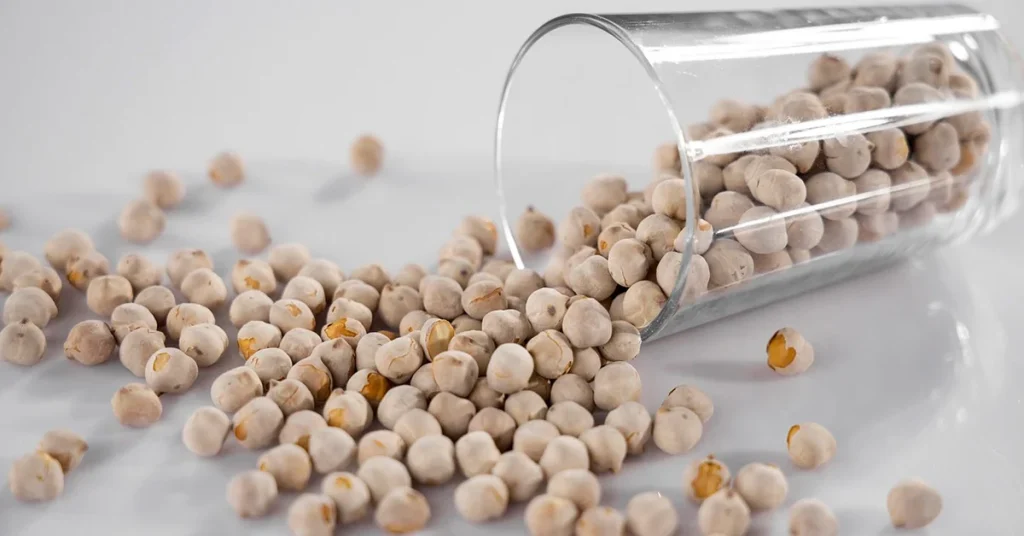
Surprising Benefit #3: Helps in Weight Management
Low in Calories, High in Nutrients
White chickpeas are relatively low in calories while providing a substantial amount of nutrients. This makes them an ideal food for anyone trying to manage their weight without sacrificing nutrition. A cup of cooked chickpeas contains only about 270 calories, yet it provides a rich array of vitamins and minerals.
White Chickpeas Keep You Fuller for Longer
The fiber and protein content in white chickpeas are what make them an effective appetite suppressant. Fiber adds bulk to meals, while protein promotes satiety, helping you feel full for longer. This can reduce cravings and prevent overeating, ultimately supporting weight management efforts.
Balancing Blood Sugar Levels with White Chickpeas
White chickpeas have a low glycemic index, which means they cause a slower and steadier rise in blood sugar levels compared to high-glycemic foods like refined carbohydrates. This is particularly beneficial for individuals managing diabetes or anyone looking to avoid energy crashes.
Surprising Benefit #4: A Boost for Your Immune System
Rich in Vitamins and Minerals That Strengthen Immunity
White chickpeas are a fantastic source of vitamins and minerals that are essential for a strong immune system. Vitamins like vitamin C and B6, along with minerals like iron and zinc, help enhance immune function, making white chickpeas an excellent addition to your diet during flu season or times of stress.
White Chickpeas and Their Role in Fighting Infections
Zinc is particularly important for immune function, and white chickpeas are an excellent source of this mineral. Zinc helps the body produce and activate immune cells, which play a critical role in fighting off infections and diseases.
Zinc and Iron Content for Optimal Immune Function
In addition to zinc, white chickpeas are rich in iron, which is necessary for transporting oxygen through the body and supporting immune cells. A deficiency in iron can lead to a weakened immune system, so consuming white chickpeas can help maintain optimal immune function.
Surprising Benefit #5: Provides Sustainable Energy
How White Chickpeas Help Maintain Energy Levels
White chickpeas are a great source of complex carbohydrates, which provide a slow and steady release of energy. Unlike simple sugars that cause spikes and crashes in energy levels, the carbs in white chickpeas provide a constant supply of fuel for the body throughout the day.
Complex Carbs and Protein for Steady Energy
Along with complex carbs, white chickpeas also provide protein, which helps
maintain muscle function and energy levels. Whether you’re working, exercising, or just going about your day, the combination of carbs and protein in white chickpeas helps keep you energized without the crash.
The Role of White Chickpeas in Sustained Physical Activity
Athletes and active individuals will benefit from the sustained energy provided by white chickpeas. Their combination of protein and carbs fuels endurance, making them an excellent choice for pre- or post-workout meals.
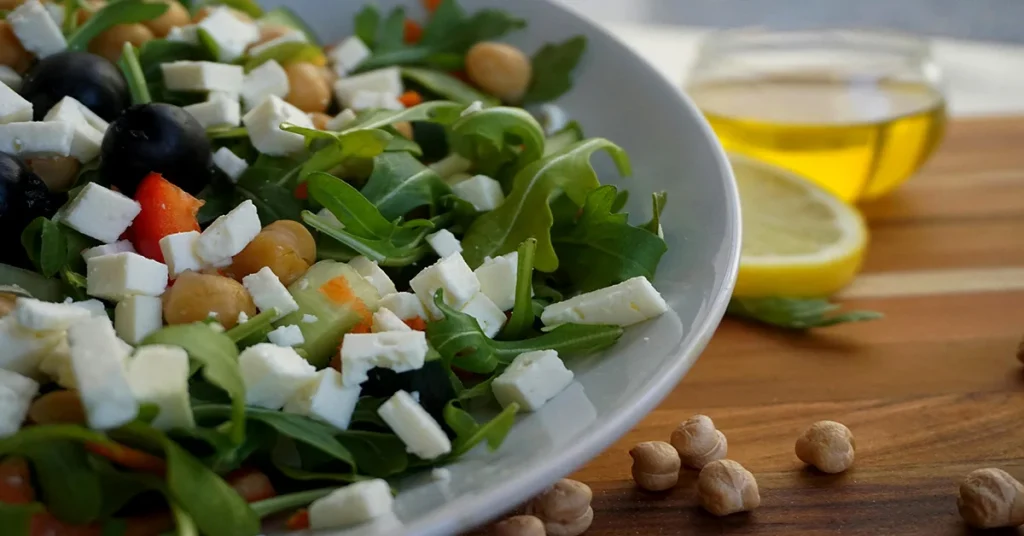
How to Incorporate White Chickpeas into Your Daily Diet
Easy Ways to Add White Chickpeas to Meals
White chickpeas are incredibly versatile. You can add them to soups, stews, salads, or curries, or use them as a base for hummus or falafel. They can also be roasted for a crunchy snack or blended into smoothies for an added protein boost.
Delicious Recipes Featuring White Chickpeas
Try a hearty chickpea stew, a Mediterranean chickpea salad, or a chickpea-based veggie burger. The possibilities are endless, and with a little creativity, you can incorporate white chickpeas into nearly every meal.
White Chickpeas as a Snack: Simple Ideas
For a healthy snack, try roasting white chickpeas with olive oil, garlic, and spices. They become crispy and satisfying, providing the perfect combination of crunch and flavor.
Are White Chickpeas Suitable for Everyone?
Can You Eat White Chickpeas on a Vegan or Gluten-Free Diet?
Absolutely! White chickpeas are naturally vegan and gluten-free, making them an excellent choice for those following these diets. They are rich in plant-based protein, fiber, and essential nutrients, ensuring that vegans and those with gluten sensitivities can enjoy a nutritious and satisfying food option.
Are There Any Risks or Side Effects to Consider?
While white chickpeas are generally safe, some people may experience bloating or gas due to their high fiber content. It’s best to introduce chickpeas gradually into your diet and drink plenty of water to help with digestion. Cooking chickpeas properly can also reduce these side effects.
The Bottom Line: Why You Should Make White Chickpeas a Staple in Your Diet
Recap of Key White Chickpeas Nutrition Benefits
White Chickpeas Nutrition Benefits, White chickpeas are rich in protein, fiber, vitamins, and minerals. They support digestion, heart health, weight management, and immune function. They provide sustainable energy and are an excellent addition to any diet.
How White Chickpeas Fit Into a Healthy Lifestyle
White Chickpeas Nutrition Benefits, Incorporating white chickpeas into your meals can help you lead a healthier, more balanced lifestyle. Whether you’re looking to lose weight, boost your immune system, or improve digestion, white chickpeas offer a simple and delicious solution.
Conclusion: Embrace the Nutritional Power of White Chickpeas
White Chickpeas Nutrition Benefits, White chickpeas are more than just a food trend; they’re a true superfood that offers a variety of health benefits. From improving digestion to supporting heart health, they’re a must-have in any nutritious diet. So, the next time you’re planning your meals, don’t forget to include these little legumes for a big boost to your health!
FAQs White Chickpeas Nutrition Benefits
Are white chickpeas healthy?
Yes, white chickpeas are very healthy! They are packed with essential nutrients such as protein, fiber, vitamins, and minerals. They are known to support digestive health, boost energy, help manage weight, and promote heart health. Their antioxidant content can also benefit skin health and improve immune function. Including white chickpeas in your diet can offer various long-term health benefits.
How much protein is in 100g of white chickpeas?
In 100 grams of cooked white chickpeas, there is approximately 8.9 grams of protein. This makes them an excellent plant-based source of protein, ideal for vegetarians, vegans, or anyone looking to increase their protein intake in a healthy, plant-based way.
Is it good to eat chickpeas every day?
Yes, eating chickpeas every day can be a great addition to a balanced diet. They provide a rich source of protein, fiber, vitamins, and minerals. Regular consumption can help with digestion, weight management, and blood sugar control. However, moderation is key, as eating excessive amounts of chickpeas can lead to bloating or digestive discomfort due to their high fiber content.
Can I eat 100g of chana every day?
Yes, you can eat 100 grams of chana (chickpeas) every day, as long as it fits within your daily caloric and nutritional needs. This amount provides a substantial amount of protein and fiber, but be mindful of portion sizes, especially if you’re new to chickpeas, as they may cause gas or bloating for some people. It’s always best to introduce them gradually into your diet.
Are chickpeas carbs or protein?
Chickpeas contain both carbs and protein. They are primarily a source of complex carbohydrates, which provide slow-releasing energy, but they are also a good source of plant-based protein. About 100 grams of cooked chickpeas provides around 27 grams of carbohydrates and about 8.9 grams of protein. They offer a balanced combination of both nutrients, making them an excellent addition to a healthy diet.
